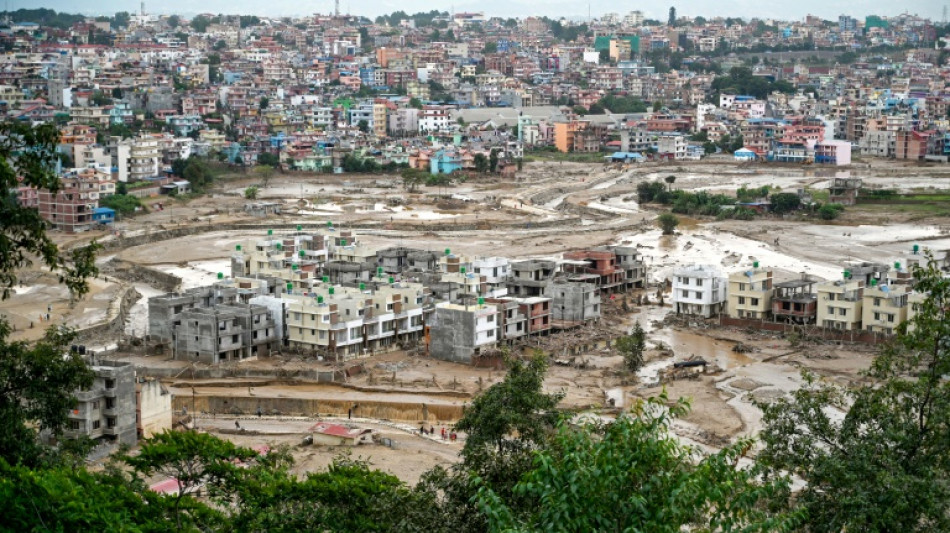
-
 Trump announces tariffs on Iran trade partners as protest toll rises
Trump announces tariffs on Iran trade partners as protest toll rises
-
Sabalenka favourite at Australian Open but faces Swiatek, US threats

-
 Gay Australian footballer Cavallo alleges former club was homophobic
Gay Australian footballer Cavallo alleges former club was homophobic
-
Trump has options on Iran, but first must define goal

-
 Paris FC's Ikone stuns PSG to knock out former club from French Cup
Paris FC's Ikone stuns PSG to knock out former club from French Cup
-
Australia's ambassador to US leaving post, marked by Trump rift

-
 Slot angered by 'weird' Szoboszlai error in Liverpool FA Cup win
Slot angered by 'weird' Szoboszlai error in Liverpool FA Cup win
-
Szoboszlai plays hero and villain in Liverpool's FA Cup win

-
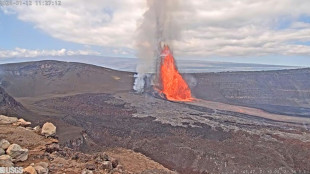 Hawaii's Kilauea volcano puts on spectacular lava display
Hawaii's Kilauea volcano puts on spectacular lava display
-
US stocks at records despite early losses on Fed independence angst

-
 Koepka rejoins PGA Tour under new rules for LIV players
Koepka rejoins PGA Tour under new rules for LIV players
-
Ex-France, Liverpool defender Sakho announces retirement

-
 Jerome Powell: The careful Fed chair standing firm against Trump
Jerome Powell: The careful Fed chair standing firm against Trump
-
France scrum-half Le Garrec likely to miss start of Six Nations

-
 AI helps fuel new era of medical self-testing
AI helps fuel new era of medical self-testing
-
Leaders of Japan and South Korea meet as China flexes muscles

-
 Trump sets meeting with Venezuelan opposition leader, Caracas under pressure
Trump sets meeting with Venezuelan opposition leader, Caracas under pressure
-
Australia captain Alyssa Healy to retire from cricket

-
 US 'screwed' if Supreme Court rules against tariffs: Trump
US 'screwed' if Supreme Court rules against tariffs: Trump
-
NATO, Greenland vow to boost Arctic security after Trump threats
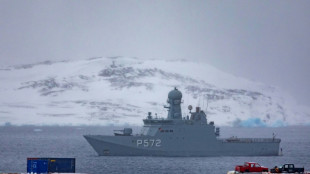
-
 Israel to take part in first Eurovision semi-final on May 12
Israel to take part in first Eurovision semi-final on May 12
-
How Alonso's dream Real Madrid return crumbled so quickly

-
 Ex-Fed chiefs, lawmakers slam US probe into Jerome Powell
Ex-Fed chiefs, lawmakers slam US probe into Jerome Powell
-
Former Panama leader on trial over mega Latin America corruption scandal

-
 Trump keeping Iran air strikes on the table: White House
Trump keeping Iran air strikes on the table: White House
-
Paramount sues in hostile bid to buy Warner Bros Discover

-
 Ugandan opposition leader Bobi Wine warns of protests if polls rigged
Ugandan opposition leader Bobi Wine warns of protests if polls rigged
-
Airbus delivers more planes in 2025

-
 Alonso leaves Real Madrid, Arbeloa appointed as coach
Alonso leaves Real Madrid, Arbeloa appointed as coach
-
UK pays 'substantial' compensation to Guantanamo inmate: lawyer
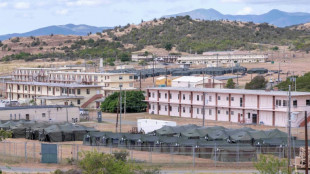
-
 Iran protest toll mounts as government stages mass rallies
Iran protest toll mounts as government stages mass rallies
-
Gold hits record high, dollar slides as US targets Fed

-
 Cuba denies being in talks with Trump on potential deal
Cuba denies being in talks with Trump on potential deal
-
Scientists reveal what drives homosexual behaviour in primates

-
 Venezuela releases more political prisoners as pressure builds
Venezuela releases more political prisoners as pressure builds
-
15,000 NY nurses stage largest-ever strike over conditions

-
 Rosenior plots long Chelsea stay as Arsenal loom
Rosenior plots long Chelsea stay as Arsenal loom
-
Zuckerberg names banker, ex-Trump advisor as Meta president

-
 Reza Pahlavi: Iran's ex-crown prince dreaming of homecoming
Reza Pahlavi: Iran's ex-crown prince dreaming of homecoming
-
Venezuela releases more political prisoners

-
 Kenya's NY marathon champ Albert Korir gets drug suspension
Kenya's NY marathon champ Albert Korir gets drug suspension
-
US prosecutors open probe of Fed chief, escalating Trump-Powell clash

-
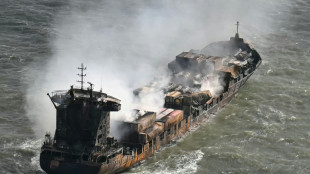 Russian captain in fiery North Sea crash faces UK trial
Russian captain in fiery North Sea crash faces UK trial
-
Carrick is frontrunner for interim Man Utd job: reports

-
 Iran government stages mass rallies as alarm grows over protest toll
Iran government stages mass rallies as alarm grows over protest toll
-
Variawa leads South African charge over Dakar dunes

-
 Swiss inferno bar owner detained for three months
Swiss inferno bar owner detained for three months
-
Heathrow airport sees record high annual passenger numbers

-
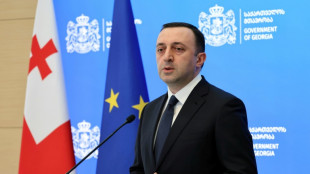 Georgia jails ex-PM for five years amid ruling party oustings
Georgia jails ex-PM for five years amid ruling party oustings
-
Kyiv buries medic killed in Russian drone strike


Climate change worsened deadly Nepal floods, scientists say
Climate change, along with rapid urbanisation and deforestation, turbocharged floods in Nepal that killed more than 240 people last month, scientists said on Thursday.
Nepal suffered its worst flooding in decades in late September after ferocious monsoon rains swelled rivers, swamping entire neighbourhoods in the capital Kathmandu and other districts.
World Weather Attribution (WWA), a network of scientists who assess the role of human-induced climate change on extreme weather events, said the link between the intense rainfall and a warming planet was clear.
"If the atmosphere wasn't overloaded with fossil fuel emissions, these floods would have been less intense, less destructive and less deadly," said researcher Mariam Zachariah, from Imperial College London.
Their analysis found the relentless rain, which fell on saturated ground in the late monsoon, was made at least 10 percent heavier and 70 percent more likely by climate change.
They warned that such "explosive" rain bursts will "become even heavier, risking more destructive floods" if the world does not stop burning fossil fuels.
Lashing rain from September 26 sparked floods and landslides that killed 246 people and left 18 missing, according to Nepal's government.
WWA, which uses modelling to compare weather patterns in our world and one without human-induced climate change, said there was a high level of uncertainty in the results because of the complex rain dynamics in the small, mountainous region affected.
However, the results were in line with growing scientific evidence on large-scale extreme rain in a warming climate, in which the atmosphere holds more water.
The role of climate change was also compounded by other man-made problems, they said, including rapid urbanisation, with a nearly four-fold increase in built-up areas in Kathmandu since 1990.
That was coupled with major deforestation that disrupted the natural flow of water, with tree cover slashed by more than a quarter since 1989.
The floods smashed hydropower plants, washed away homes and ripped away bridges. It was the latest disastrous flood to hit the Himalayan nation this year.
"Climate change is no longer a distant threat," said Roshan Jha, Researcher at the Indian Institute of Technology in Mumbai.
"With every fraction of a degree of warming, the atmosphere can potentially hold more moisture, leading to much heavier downpours, and catastrophic floods like these."
Nepal has embarked on a giant hydropower dam building spree, generating 99 percent of its power, with output increasing fourfold in the past eight years.
It has signed deals to export surplus power to neighbouring coal-dependent India.
Earlier this month, the UN's World Meteorological Organization said that increasingly intense floods and droughts are a "distress signal" of what is to come as climate change makes the planet's water cycle ever more unpredictable.
WMO chief Celeste Saulo called water the "canary in the coal mine of climate change".
C.Hamad--SF-PST



